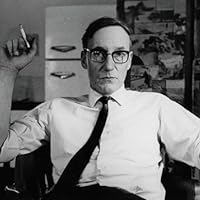Bureaucracy Quotes
Quotes tagged as "bureaucracy"
Showing 1-30 of 277

“But the plans were on display…”
“On display? I eventually had to go down to the cellar to find them.”
“That’s the display department.”
“With a flashlight.”
“Ah, well, the lights had probably gone.”
“So had the stairs.”
“But look, you found the notice, didn’t you?”
“Yes,” said Arthur, “yes I did. It was on display in the bottom of a locked filing cabinet stuck in a disused lavatory with a sign on the door saying ‘Beware of the Leopard.”
― The Hitchhiker’s Guide to the Galaxy
“On display? I eventually had to go down to the cellar to find them.”
“That’s the display department.”
“With a flashlight.”
“Ah, well, the lights had probably gone.”
“So had the stairs.”
“But look, you found the notice, didn’t you?”
“Yes,” said Arthur, “yes I did. It was on display in the bottom of a locked filing cabinet stuck in a disused lavatory with a sign on the door saying ‘Beware of the Leopard.”
― The Hitchhiker’s Guide to the Galaxy

“I live in the Managerial Age, in a world of "Admin." The greatest evil is not now done in those sordid "dens of crime" that Dickens loved to paint. It is not done even in concentration camps and labour camps. In those we see its final result. But it is conceived and ordered (moved, seconded, carried, and minuted) in clean, carpeted, warmed and well-lighted offices, by quiet men with white collars and cut fingernails and smooth-shaven cheeks who do not need to raise their voices. Hence, naturally enough, my symbol for Hell is something like the bureaucracy of a police state or the office of a thoroughly nasty business concern."
[From the Preface]”
― The Screwtape Letters
[From the Preface]”
― The Screwtape Letters

“Whether the mask is labeled fascism, democracy, or dictatorship of the proletariat, our great adversary remains the apparatus—the bureaucracy, the police, the military. Not the one facing us across the frontier of the battle lines, which is not so much our enemy as our brothers' enemy, but the one that calls itself our protector and makes us its slaves. No matter what the circumstances, the worst betrayal will always be to subordinate ourselves to this apparatus and to trample underfoot, in its service, all human values in ourselves and in others.”
―
―

“Just three words? Nothing about his physical health? His equipment? His supplies?'
'You got me,' she said. 'He left a detailed status report. I just decided to lie for no reason.'
'Funny,' Venkat said. 'Be a smart-ass to a guy seven levels above you at your company. See how that works out.'
'Oh no,' Mindy said. 'I might lose my job as an interplanetary voyeur? I guess I'd have to use my master's degree for something else.'
'I remember when you were shy.'
'I'm space paparazzi now. The attitude comes with the job.”
― The Martian
'You got me,' she said. 'He left a detailed status report. I just decided to lie for no reason.'
'Funny,' Venkat said. 'Be a smart-ass to a guy seven levels above you at your company. See how that works out.'
'Oh no,' Mindy said. 'I might lose my job as an interplanetary voyeur? I guess I'd have to use my master's degree for something else.'
'I remember when you were shy.'
'I'm space paparazzi now. The attitude comes with the job.”
― The Martian

“Bureaucracy destroys initiative. There is little that bureaucrats hate more than innovation, especially innovation that produces better results than the old routines. Improvements always make those at the top of the heap look inept. Who enjoys appearing inept?”
― Heretics of Dune
― Heretics of Dune

“A totally nondenominational prayer: Insofar as I may be heard by anything, which may or may not care what I say, I ask, if it matters, that I be forgiven for anything I may have done or failed to do which requires forgiveness. Conversely, if not forgiveness but something else may be required to insure any possible benefit for which I may be eligible after the destruction of my body, I ask that this, whatever it may be, be granted or withheld, as the case may be, in such a manner as to insure said benefit. I ask this in my capacity as your elected intermediary between yourself and that which may not be yourself, but which may have an interest in the matter of your receiving as much as it is possible for you to receive of this thing, and which may in some way be influenced by this ceremony. Amen.”
― Creatures of Light and Darkness
― Creatures of Light and Darkness

“Government! Three fourths parasitic and the other fourth Stupid fumbling.”
― Stranger in a Strange Land
― Stranger in a Strange Land

“But who would build the roads if there were no government?
You mean to tell me that 300 million people in this country and 7 billion people on the planet would just sit around in their houses and think “Gee, I’d like to go visit Fred, but I can't because there isn’t a flat thing outside for me to drive on, and I don’t know how to build it and the other 300 million or 7 billion people can’t possibly do it because there aren’t any politicians and tax collectors. If they were here then we could do it. If they were here to boss us around and steal our money and really inefficiently build the flat places, then we would be set. Then I would be comfortable and confident that I could get places. But I can’t go to Fred’s house or the market because we can’t possibly build a flat space from A to B. We can make these really small devices that enable us to contact people from all over the word that fits in our pockets; we can make machines that we drive around in, but no, we can’t possibly build a flat space.”
―
You mean to tell me that 300 million people in this country and 7 billion people on the planet would just sit around in their houses and think “Gee, I’d like to go visit Fred, but I can't because there isn’t a flat thing outside for me to drive on, and I don’t know how to build it and the other 300 million or 7 billion people can’t possibly do it because there aren’t any politicians and tax collectors. If they were here then we could do it. If they were here to boss us around and steal our money and really inefficiently build the flat places, then we would be set. Then I would be comfortable and confident that I could get places. But I can’t go to Fred’s house or the market because we can’t possibly build a flat space from A to B. We can make these really small devices that enable us to contact people from all over the word that fits in our pockets; we can make machines that we drive around in, but no, we can’t possibly build a flat space.”
―

“Zamanism is about creating power and private resources for all in society by destroying bureaucratic and monopolistic control on society.”
― ZAMANISM Wealth of the People
― ZAMANISM Wealth of the People

“The idealized market was supposed to deliver ‘friction free’ exchanges, in which the desires of consumers would be met directly, without the need for intervention or mediation by regulatory agencies. Yet the drive to assess the performance of workers and to measure forms of labor which, by their nature, are resistant to quantification, has inevitably required additional layers of management and bureaucracy. What we have is not a direct comparison of workers’ performance or output, but a comparison between the audited representation of that performance and output. Inevitably, a short-circuiting occurs, and work becomes geared towards the generation and massaging of representations rather than to the official goals of the work itself. Indeed, an anthropological study of local government in Britain argues that ‘More effort goes into ensuring that a local authority’s services are represented correctly than goes into actually improving those services’. This reversal of priorities is one of the hallmarks of a system which can be characterized without hyperbole as ‘market Stalinism’. What late capitalism repeats from Stalinism is just this valuing of symbols of achievement over actual achievement.
[…]
It would be a mistake to regard this market Stalinism as some deviation from the ‘true spirit’ of capitalism. On the contrary, it would be better to say that an essential dimension of Stalinism was inhibited by its association with a social project like socialism and can only emerge in a late capitalist culture in which images acquire an autonomous force. The way value is generated on the stock exchange depends of course less on what a company ‘really does’, and more on perceptions of, and beliefs about, its (future) performance. In capitalism, that is to say, all that is solid melts into PR, and late capitalism is defined at least as much by this ubiquitous tendency towards PR-production as it is by the imposition of market mechanisms.”
― Capitalist Realism: Is There No Alternative?
[…]
It would be a mistake to regard this market Stalinism as some deviation from the ‘true spirit’ of capitalism. On the contrary, it would be better to say that an essential dimension of Stalinism was inhibited by its association with a social project like socialism and can only emerge in a late capitalist culture in which images acquire an autonomous force. The way value is generated on the stock exchange depends of course less on what a company ‘really does’, and more on perceptions of, and beliefs about, its (future) performance. In capitalism, that is to say, all that is solid melts into PR, and late capitalism is defined at least as much by this ubiquitous tendency towards PR-production as it is by the imposition of market mechanisms.”
― Capitalist Realism: Is There No Alternative?

“Very often the test of one's allegiance to a cause or to a people is precisely the willingness to stay the course when things are boring, to run the risk of repeating an old argument just one more time, or of going one more round with a hostile or (much worse) indifferent audience. I first became involved with the Czech opposition in 1968 when it was an intoxicating and celebrated cause. Then, during the depressing 1970s and 1980s I was a member of a routine committee that tried with limited success to help the reduced forces of Czech dissent to stay nourished (and published). The most pregnant moment of that commitment was one that I managed to miss at the time: I passed an afternoon with Zdenek Mlynar, exiled former secretary of the Czech Communist Party, who in the bleak early 1950s in Moscow had formed a friendship with a young Russian militant with an evident sense of irony named Mikhail Sergeyevitch Gorbachev. In 1988 I was arrested in Prague for attending a meeting of one of Vaclav Havel's 'Charter 77' committees. That outwardly exciting experience was interesting precisely because of its almost Zen-like tedium. I had gone to Prague determined to be the first visiting writer not to make use of the name Franz Kafka, but the numbing bureaucracy got the better of me. When I asked why I was being detained, I was told that I had no need to know the reason! Totalitarianism is itself a cliché (as well as a tundra of pulverizing boredom) and it forced the cliché upon me in turn. I did have to mention Kafka in my eventual story. The regime fell not very much later, as I had slightly foreseen in that same piece that it would. (I had happened to notice that the young Czechs arrested with us were not at all frightened by the police, as their older mentors had been and still were, and also that the police themselves were almost fatigued by their job. This was totalitarianism practically yawning itself to death.) A couple of years after that I was overcome to be invited to an official reception in Prague, to thank those who had been consistent friends through the stultifying years of what 'The Party' had so perfectly termed 'normalization.' As with my tiny moment with Nelson Mandela, a whole historic stretch of nothingness and depression, combined with the long and deep insult of having to be pushed around by boring and mediocre people, could be at least partially canceled and annealed by one flash of humor and charm and generosity.”
― Hitch 22: A Memoir
― Hitch 22: A Memoir

“I sighed. I hated the maze of bureaucracy with a passion, but I've found the best way to deal with it is to smile and act stupid. That way, no one gets confused.”
― Dead Witch Walking
― Dead Witch Walking

“In a fully developed bureaucracy there is nobody left with whom one can argue, to whom one can present grievances, on whom the pressures of power can be exerted. Bureaucracy is the form of government in which everybody is deprived of political freedom, of the power to act; for the rule by Nobody is not no-rule, and where all are equally powerless, we have a tyranny without a tyrant.”
― On Violence
― On Violence

“Even by the twenty-second century, no way had yet been discovered of keeping elderly and conservative scientists from occupying crucial administrative positions. Indeed, it was doubted if the problem ever would be solved.”
― Rendezvous with Rama
― Rendezvous with Rama

“What you have to understand is that bureaucracy is an organism, and the prime goal of every organism is self-protection. Bureaucracy exists to protect itself.”
― Sea of Tranquility
― Sea of Tranquility

“The NSA?"
"Yeah, they called and offered to help out. Same software they use for enhancing spy satellite imagery."
Venkat shrugged. "It's amazing how much red tape gets cut when everyone's rooting for one man to survive.”
― The Martian
"Yeah, they called and offered to help out. Same software they use for enhancing spy satellite imagery."
Venkat shrugged. "It's amazing how much red tape gets cut when everyone's rooting for one man to survive.”
― The Martian

“Democracy is cancerous, and bureaus are its cancer. A bureau takes root anywhere in the state, turns malignant like the Narcotic Bureau, and grows and grows, always reproducing more of its own kind, until it chokes the host if not controlled or excised. Bureaus cannot live without a host, being true parasitic organisms. (A cooperative on the other hand can live without the state. That is the road to follow. The building up of independent units to meet needs of the people who participate in the functioning of the unit. A bureau operates on opposite principles of inventing needs to justify its existence.) Bureaucracy is wrong as a cancer, a turning away from the human evolutionary direction of infinite potentials and differentiation and independent spontaneous action to the complete parasitism of a virus. (It is thought that the virus is a degeneration from more complex life-form. It may at one time have been capable of independent life. Now has fallen to the borderline between living and dead matter. It can exhibit living qualities only in a host, by using the life of another — the renunciation of life itself, a falling towards inorganic, inflexible machine, towards dead matter.) Bureaus die when the structure of the state collapse. They are as helpless and unfit for independent existence as a displaced tapeworm, or a virus that has killed the host.”
― Naked Lunch
― Naked Lunch

“How many twenty-second-century bureaucrats did it take to change a light panel?
We'll have a sub-committee meeting and get back to you with an estimate.”
― Great North Road
We'll have a sub-committee meeting and get back to you with an estimate.”
― Great North Road

“Confidential matters are not dealt with over the telephone, you'd better come here in person. I cannot leave the house, Do you mean you're ill, Yes, I'm ill, the blind man said after a pause. In that case you ought to call a doctor, a real doctor, quipped the functionary, and, delighted with his own wit, he rang off.
The man's insolence was like a slap in the face. Only after some minutes had passed, had he regained enough composure to tell his wife how rudely he had been treated. Then, as if he had discovered something that he should have known a long time ago, he murmured sadly, This is the stuff we're made of, half indifference and half malice.”
― Blindness
The man's insolence was like a slap in the face. Only after some minutes had passed, had he regained enough composure to tell his wife how rudely he had been treated. Then, as if he had discovered something that he should have known a long time ago, he murmured sadly, This is the stuff we're made of, half indifference and half malice.”
― Blindness

“Bureaucracies force us to practice nonsense. And if you rehearse nonsense, you may one day find yourself the victim of it.”
― Everyday Survival: Why Smart People Do Stupid Things
― Everyday Survival: Why Smart People Do Stupid Things

“In our time... a man whose enemies are faceless bureaucrats almost never wins. It is our equivalent to the anger of the gods in ancient times. But those gods you must understand were far more imaginative than our tiny bureaucrats. They spoke from mountaintops not from tiny airless offices. They rode clouds. They were possessed of passion. They had voices and names. Six thousand years of civilization have brought us to this.”
― Davita's Harp
― Davita's Harp

“One might ask, how could that most basic element of all human freedoms, the freedom to make promises and commitments and thus build relationships, be turned into its very opposite: into peonage, serfdom or permanent slavery? It happens, we’d suggest, precisely when promises become impersonal, transferable – in a nutshell, bureaucratized.”
― The Dawn of Everything: A New History of Humanity
― The Dawn of Everything: A New History of Humanity

“It occurred to Susan that men were always waiting for something cataclysmic--love or war or a giant asteroid. Every man wanted to be a hot-headed Bruce Willis character, fighting against the evil foreign enemy while despising the domestic bureaucracy. Men just wanted to focus on one big thing, leaving the thousands of smaller messes for the women around them to clean up.”
― American Salvage
― American Salvage

“Bureaucracies, I've suggested, are not themselves forms of stupidity so much as they are ways of organizing stupidity--of managing relationships that are already characterized by extremely unequal structures of imagination, which exist because of the existence of structural violence.”
― The Utopia of Rules: On Technology, Stupidity, and the Secret Joys of Bureaucracy
― The Utopia of Rules: On Technology, Stupidity, and the Secret Joys of Bureaucracy

“private loans will utilize existing resources and capital far better than government loans. Government loans will waste far more capital and resources than private loans. Government loans, in short, as compared with private loans, will reduce production, not increase it.”
― Economics in One Lesson
― Economics in One Lesson
“The obvious pollution occurring in many places - worst of all, in the planned societies- has encouraged the growth of the environmental movement, which, however, as shown in previous chapters, has an agenda that goes far beyond clean-up and beautification, far beyond the stewardship of nature that is commanded by ancient religious tradition. Embracing the "biospheric vision" in the "spirit of deep ecology", the movement sees human beings as the chief enemy in the struggle on behalf of a deified Nature. The environmental movement, therefore, is the perfect vehicle for population control. It is popular - people do love trees and animals and beautiful scenery - and it is unequivocal in its devotion to reducing human numbers. The environmental agencies of the United Nations, with their chilling blueprints for "demographic transition" and a standardless, undefined but totally planned and controlled "sustainable development", combine the fervor of nature worship with the lack of accountability of an unelected, international bureaucracy.”
― The War Against Population: The Economics and Ideology of World Population Control
― The War Against Population: The Economics and Ideology of World Population Control

“To him, one of the most fascinating historical aspects of governments was their complete disregard for governing. Governments were single-minded and interested only in increasing their control and any governance that came out of the government's actions were purely coincidental. .... The lowest flunky as well as the most powerful bureaucrat was more interested in protecting his sinecure than in helping the citizens who coughed up tax money to pay the government worker's salaries.”
― Zaftan Entrepreneurs: Book 1 of the Zaftan Trilogy
― Zaftan Entrepreneurs: Book 1 of the Zaftan Trilogy

“Wie es im Zeitalter der Könige naiv gewesen wäre zu glauben, dass der erstgeborene Königssohn der zum Herrschen Geeignetste wäre, so ist es in unserer zeit naiv zu glauben, dass der demokratisch gewählte Machthaber der Geeignetste sein wird. Die Nachfolgeregelung ist kein Rezept für die Bestimmung des besten Machthabers, sie ist ein Rezept für die Legitimierung dieser oder jener Person und somit für die Vermeidung von Bürgerkriegen. Die Wählerschaft - der Demos - glaubt, es sei ihre Aufgabe, den Besten auszuwählen, doch in Wahrheit ist ihre Aufgabe viel schlichter: einen Mann zu salben [...], gleichgültig welchen.”
― Tagebuch eines schlimmen Jahres
― Tagebuch eines schlimmen Jahres

“Until recently, attempts to resolve the contradictions created by urbanization, centralization, bureaucratic growth and statification were viewed as a vain counterdrift to "progress"—a counterdrift that could be dismissed as chimerical and reactionary. The anarchist was regarded as a forlorn visionary, a social outcast, filled with nostalgia for the peasant village or the medieval commune. His yearnings for a decentralized society and for a humanistic community at one with nature and the needs of the individual—the spontaneous individual, unfettered by authority—were viewed as the reactions of a romantic, of a declassed craftsman or an intellectual "misfit." His protest against centralization and statification seemed all the less persuasive because it was supported primarily by ethical considerations—by Utopian, ostensibly "unrealistic," notions of what man could be, not by what he was. In response to this protest, opponents of anarchist thought—liberals, rightists and authoritarian "leftists"—argued that they were the voices of historic reality, that their statist and centralist notions were rooted in the objective, practical world.
Time is not very kind to the conflict of ideas. Whatever may have been the validity of libertarian and non-libertarian views a few years ago, historical development has rendered virtually all objections to anarchist thought meaningless today. The modern city and state, the massive coal-steel technology of the Industrial Revolution, the later, more rationalized, systems of mass production and assembly-line systems of labor organization, the centralized nation, the state and its bureaucratic apparatus—all have reached their limits. Whatever progressive or liberatory role they may have possessed, they have now become entirely regressive and oppressive. They are regressive not only because they erode the human spirit and drain the community of all its cohesiveness, solidarity and ethico-cultural standards; they are regressive from an objective standpoint, from an ecological standpoint. For they undermine not only the human spirit and the human community but also the viability of the planet and all living things on it.”
― Post-Scarcity Anarchism
Time is not very kind to the conflict of ideas. Whatever may have been the validity of libertarian and non-libertarian views a few years ago, historical development has rendered virtually all objections to anarchist thought meaningless today. The modern city and state, the massive coal-steel technology of the Industrial Revolution, the later, more rationalized, systems of mass production and assembly-line systems of labor organization, the centralized nation, the state and its bureaucratic apparatus—all have reached their limits. Whatever progressive or liberatory role they may have possessed, they have now become entirely regressive and oppressive. They are regressive not only because they erode the human spirit and drain the community of all its cohesiveness, solidarity and ethico-cultural standards; they are regressive from an objective standpoint, from an ecological standpoint. For they undermine not only the human spirit and the human community but also the viability of the planet and all living things on it.”
― Post-Scarcity Anarchism
All Quotes
|
My Quotes
|
Add A Quote
Browse By Tag
- Love Quotes 98.5k
- Life Quotes 76.5k
- Inspirational Quotes 73.5k
- Humor Quotes 44k
- Philosophy Quotes 30k
- Inspirational Quotes Quotes 27.5k
- God Quotes 26.5k
- Truth Quotes 24k
- Wisdom Quotes 24k
- Romance Quotes 23.5k
- Poetry Quotes 22.5k
- Death Quotes 20k
- Life Lessons Quotes 20k
- Happiness Quotes 19k
- Quotes Quotes 18k
- Faith Quotes 18k
- Hope Quotes 18k
- Inspiration Quotes 17k
- Spirituality Quotes 15k
- Religion Quotes 15k
- Motivational Quotes 15k
- Writing Quotes 15k
- Relationships Quotes 14.5k
- Life Quotes Quotes 14.5k
- Love Quotes Quotes 14.5k
- Success Quotes 13.5k
- Time Quotes 12.5k
- Motivation Quotes 12.5k
- Science Quotes 12k
- Motivational Quotes Quotes 11.5k


